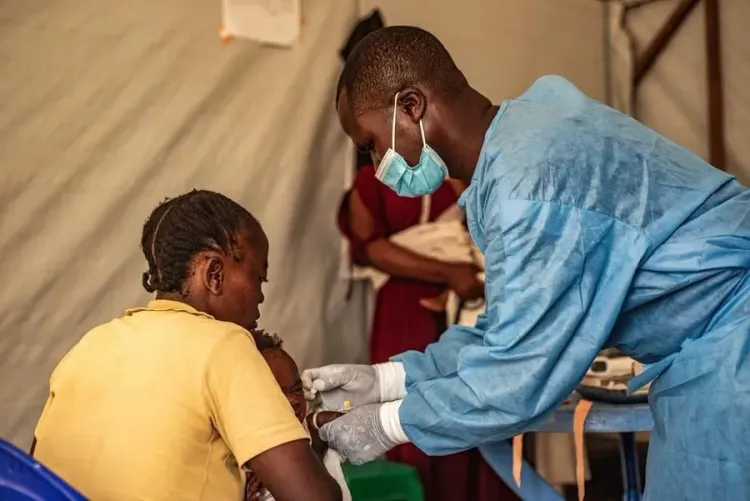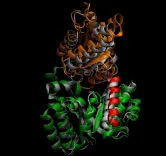What Are the Current Cholera and Mpox Deaths in Africa?

Synopsis
Key Takeaways
- Africa has reported over 4,200 deaths from cholera and mpox in 2025.
- Inadequate access to clean water is a primary driver of cholera outbreaks.
- 21 African nations have recorded significant cholera cases.
- 23 African countries have reported mpox cases this year.
- Immediate treatment is essential for cholera to prevent fatalities.
Addis Ababa, July 12 (NationPress) In 2025, Africa has unfortunately reported over 4,200 fatalities stemming from persistent cholera and mpox outbreaks across the continent, according to the Africa Centers for Disease Control and Prevention (Africa CDC).
During a recent online press conference, Yap Boum II, Deputy Incident Manager for mpox at Africa CDC, stated that cholera and mpox are currently the leading disease outbreaks this year, accounting for 4,275 deaths since January.
Data from the African Union's specialized healthcare agency reveals that 21 African nations have documented 176,136 suspected cholera cases and 3,697 deaths related to the disease since the beginning of the year.
The underlying issue of inadequate clean and safe water has been pinpointed as a significant factor contributing to the resurgence of cholera outbreaks in Africa, a situation worsened by overburdened healthcare systems as the continent faces multiple disease outbreaks and public health crises.
As of now, approximately 23 African countries have recorded 79,024 mpox cases and 578 deaths linked to the disease since 2025 began.
Last August, the Africa CDC identified the mpox outbreak as a public health emergency of continental security. Shortly after, the World Health Organization (WHO) classified the viral infection as a public health emergency of international concern, according to reports from Xinhua news agency.
The WHO classifies cholera as an acute diarrheal infection caused by consuming food or water tainted with the Vibrio cholerae bacterium. It poses a global public health threat and highlights social and economic disparities. Access to safe water, basic sanitation, and hygiene is critical to preventing cholera and other waterborne diseases.
While most cholera patients experience mild or moderate diarrhea and can be treated with oral rehydration solution (ORS), the disease can escalate swiftly, making immediate treatment essential to save lives. Severe cases require intravenous fluids, ORS, and antibiotics.
Cholera has been documented for centuries, with the first pandemic recorded in the 19th century. Since then, six pandemics have resulted in millions of deaths globally, with the current (seventh) pandemic starting in South Asia in 1961 and continuing to impact populations worldwide.
Mpox, formerly referred to as monkeypox, is a viral infection caused by the monkeypox virus. Symptoms can include a rash, fever, and swollen lymph nodes. The virus can be transmitted from animals to humans and also between humans, mainly through close contact.









